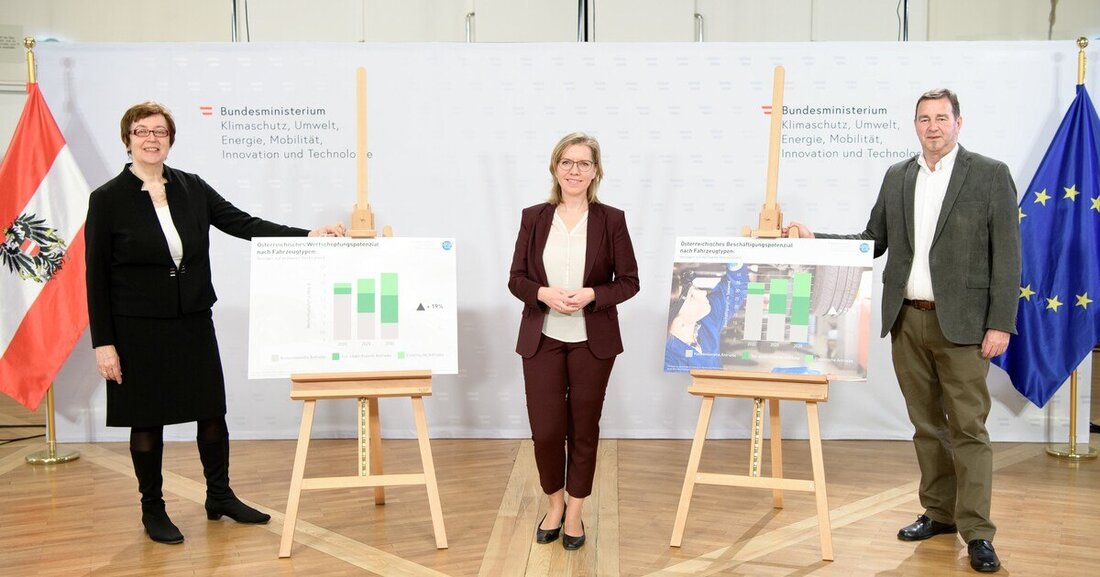Study: E-mobility as a driver of value creation in the domestic automotive industry
A new study from Austria aims to demonstrate what potential for value creation still exists in e-mobility. Unfortunately, almost all important questions remained unanswered.

Study: E-mobility as a driver of value creation in the domestic automotive industry
Climate Protection Minister Leonore Gewessler, Theresia Vogel, Managing Director of the Climate and Energy Fund, and Wilfried Sihn, Managing Director of Frauenhofer Austria, presented a study today that is intended to show the value creation potential of e-mobility in Austria. The key message of the study: Value creation could increase by 19 percent to four billion euros by 2030 and create over 7,000 more direct employees. According to Sihn, another 1,000 more jobs could easily be created in the expanded industry – for example in the charging infrastructure. Sihn literally: “E-mobility will destroy jobs – but not in Austria.” Weil: The domestic suppliers are almost entirely SMEs and are so technically competent that a lot of know-how can be contributed to the vehicle industry.
The decade of change
Theresia Vogel says: "The 2020s will be the decade in which a lot will happen in mobility. The switch from fossil fuels to climate-friendly e-mobility is the driver for the big change." She says that the domestic car market is shrinking, but anyone who would rely on e-mobility now would be the big winner in the future. Sihn and Vogel agree that today's cars - no matter what drive is hidden under the body - will be smartphones with four wheels in the future. “The business model will change radically.” Minister Gewessler emphasizes several times that e-mobility is a huge opportunity for the local economy, a real economic downturn. Comprehensive e-mobility is already feasible today, as illustrated in a thought experiment: “If we were to switch all around five million registered cars in Austria to electric cars from one day to the next, the total electricity consumption would only be 15 percent higher than currently.” The Climate Protection Minister wants to cover all domestic electricity needs in a climate-neutral manner by 2030.
Help for industry
In order to make the switch to climate-friendly mobility, “we will actively support the industry,” says Vogel. When asked, Minister Gewessler's answers as to what this support actually looked like were still rather vague: "We have planned 300 million euros in funding for research and development relevant to climate protection. Further measures will be developed and presented later." Wilfried Sihn explains that as part of the study, many SMEs asked him where they would get the skilled workers they needed, as other qualifications were in demand. The answer also remained vague. “Of course you would also have to question the entire school and training system, but we don’t want to open this big barrel now.”

 Suche
Suche
 Mein Konto
Mein Konto